
Ajloun Castle: A Historic Gem in Jordan's Scenic Hills
Ajloun Castle, also known as Qal'at Ar-Rabad, is a beautifully preserved fortress nestled in the scenic hills of northern Jordan. Originally built in the 12th century by the nephew of the famous Islamic leader Saladin, the castle was designed to protect the region from Crusader incursions and to secure the vital trade routes. Today, it stands as a testament to the medieval Islamic military architecture, offering visitors a glimpse into the past and breathtaking views of the surrounding countryside. Visitors to Ajloun Castle can explore its numerous towers, chambers, and passageways, each revealing a piece of history. The castle's strategic location atop a hill provides panoramic vistas of the Jordan Valley and the distant mountains. As you wander through the castle, you'll find informative displays and exhibits that detail its construction, history, and the various battles it has witnessed over the centuries. The surrounding area of Ajloun is equally enchanting, with lush forests, olive groves, and charming villages. The Ajloun Forest Reserve is nearby, offering nature trails and the chance to spot local wildlife. Whether you're a history enthusiast, nature lover, or simply seeking a peaceful retreat, Ajloun Castle and its surroundings promise an unforgettable experience.
Local tips in Ajloun Castle
- Wear comfortable shoes as the terrain can be uneven and there are many stairs.
- Visit early in the morning or late afternoon to avoid the midday heat and enjoy the best light for photography.
- Check the weather forecast as the area can get cool, especially in the evenings.
- Bring water and snacks, as there are limited facilities near the castle.
- Consider hiring a local guide to enrich your visit with detailed historical insights.
Ajloun Castle: A Historic Gem in Jordan's Scenic Hills
Ajloun Castle, also known as Qal'at Ar-Rabad, is a beautifully preserved fortress nestled in the scenic hills of northern Jordan. Originally built in the 12th century by the nephew of the famous Islamic leader Saladin, the castle was designed to protect the region from Crusader incursions and to secure the vital trade routes. Today, it stands as a testament to the medieval Islamic military architecture, offering visitors a glimpse into the past and breathtaking views of the surrounding countryside. Visitors to Ajloun Castle can explore its numerous towers, chambers, and passageways, each revealing a piece of history. The castle's strategic location atop a hill provides panoramic vistas of the Jordan Valley and the distant mountains. As you wander through the castle, you'll find informative displays and exhibits that detail its construction, history, and the various battles it has witnessed over the centuries. The surrounding area of Ajloun is equally enchanting, with lush forests, olive groves, and charming villages. The Ajloun Forest Reserve is nearby, offering nature trails and the chance to spot local wildlife. Whether you're a history enthusiast, nature lover, or simply seeking a peaceful retreat, Ajloun Castle and its surroundings promise an unforgettable experience.
When is the best time to go to Ajloun Castle?
Unmissable attractions to see
محمية غابات عجلون
Experience the breathtaking landscapes and eco-adventures of Ajloun Forest Reserve, a premier destination for nature lovers in Jordan.
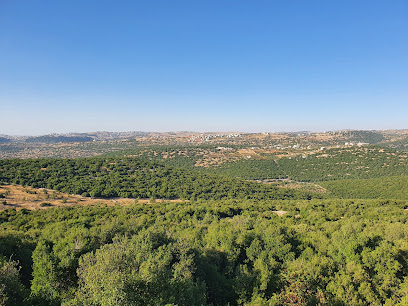
The Royal Tank Museum متحف الدبابات الملكي
Explore military history at The Royal Tank Museum in Amman, featuring a vast collection of tanks and exhibits on armored warfare and the Jordanian Armed Forces.
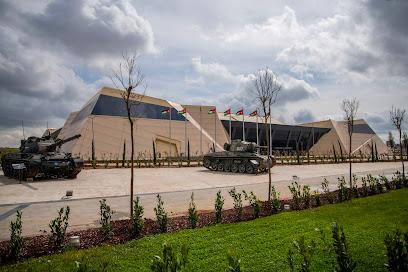
Trax Jo
Experience the thrill of sports and the joy of socializing at Trax Jo, Amman's premier recreation center with basketball, padel, and more.
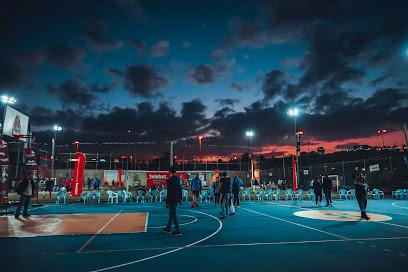
Ishtafina Park Tourism
Experience the natural beauty and tranquility of Ishtafina Park in Ajloun, a perfect getaway for relaxation and family fun amidst lush landscapes.
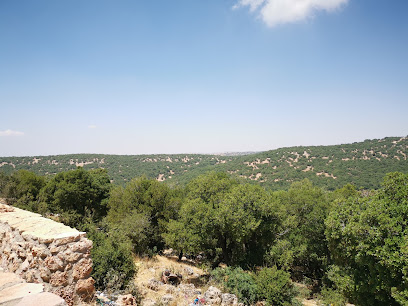
Temple of Artemis
Discover the grandeur of the Temple of Artemis in Jerash, a stunning Roman architectural masterpiece that offers a glimpse into ancient history.
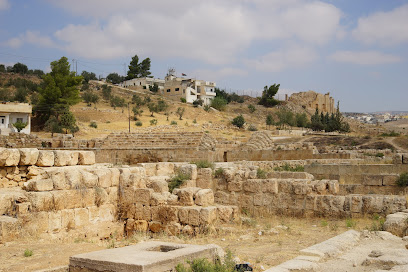
Dibbeen Forest Reserve
Explore the enchanting Dibbeen Forest Reserve in Jerash, Jordan, where nature's beauty meets thrilling adventure.

Ajloun Forest Reserve Visitor Center
Explore the lush landscapes and rich biodiversity of Ajloun Forest Reserve, a sanctuary for nature lovers and eco-tourists in Jordan.
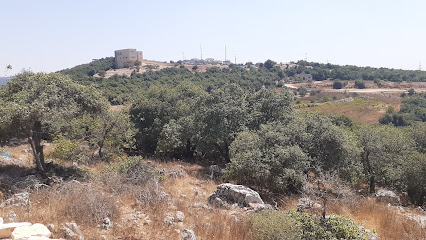
Kufranja Dam
Explore Kufranja Dam, a serene haven in Ajloun, Jordan, offering stunning landscapes and a peaceful retreat for nature lovers and adventure seekers.
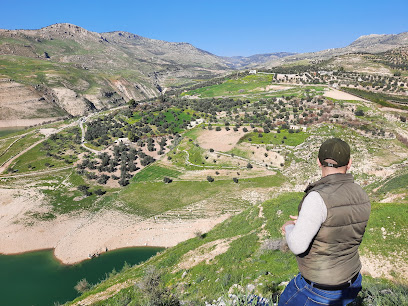
القرية الحضرية URBAN VILLAGE
Experience nature's beauty and sustainability at the Urban Village in Ajloun, an ecological park dedicated to environmental conservation and education.
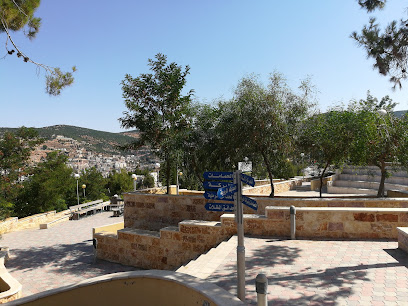
كنيسة سيدة الجبل
Explore Saydet El Jabal: A picturesque Catholic church in Ajloun offering tranquility, history, and stunning views amidst nature's beauty.
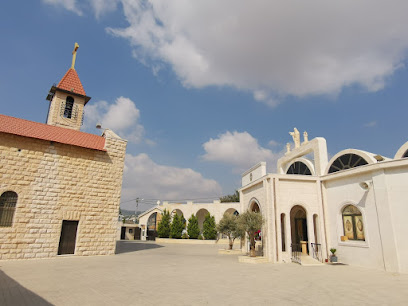
Jordan Craft Center
Discover the heart of Jordanian craftsmanship at the Jordan Craft Center, where tradition meets creativity in every handmade piece.
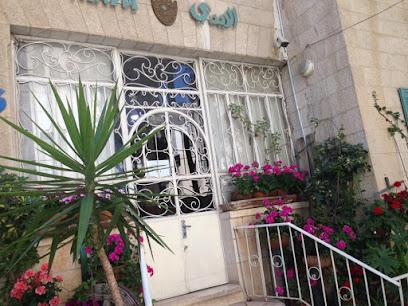
منتزه عجلون السياحي Ajloun Tourist Park
Discover the enchanting Ajloun Tourist Park, a natural retreat in Jordan filled with wildlife and stunning landscapes, perfect for family outings and adventures.
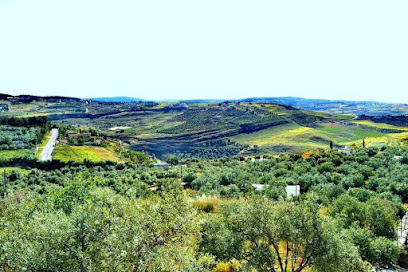
Dar Al-Anda Art Gallery
Explore contemporary art and unique gifts at Dar Al-Anda Art Gallery in Amman, a must-visit cultural destination for art enthusiasts.
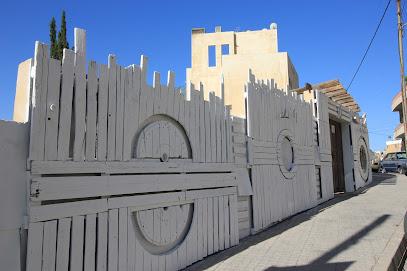
Jordan Folklore Museum
Explore the Jordan Folklore Museum in Amman for a captivating journey through Jordanian culture and traditions, showcasing rich heritage and engaging exhibits.
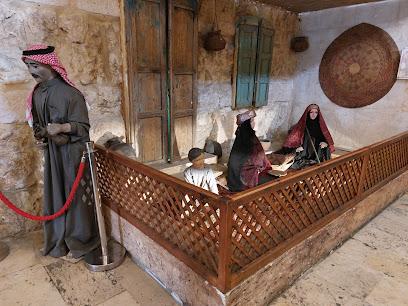
وادي زقيق
Explore Wadi Zqiq, a breathtaking natural wonder in Jordan, perfect for hiking, birdwatching, and experiencing serene landscapes.
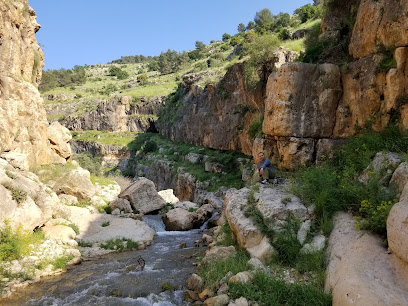
Essential places to dine
Jar Al Jabal Restaurant - مطعم جار الجبل
Experience authentic Jordanian cuisine at Jar Al Jabal Restaurant near Ajloun Castle, blending stunning views with delightful flavors.
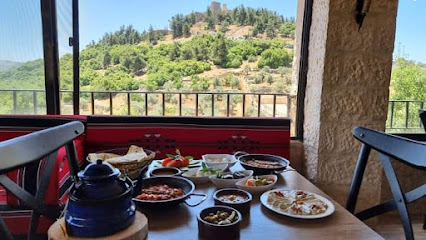
Resturant and cafe' castle view ( مطعم وكافيه اطلالة القلعة )
Experience delicious local cuisine with breathtaking views at Restaurant and Café Castle View in Ajloun.
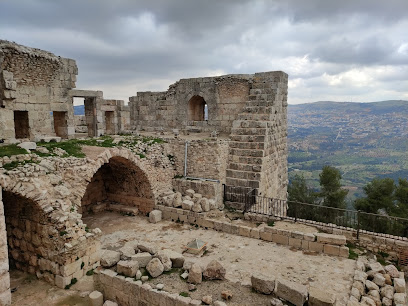
مطعم البلوط
Experience authentic Jordanian cuisine at مطعم البلوط while enjoying breathtaking views of Ajloun's natural beauty.
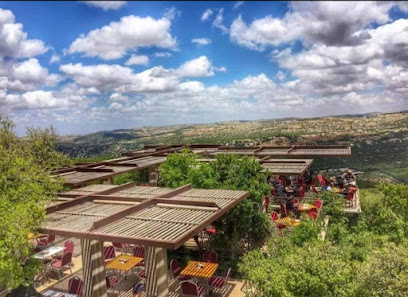
مطعم بانوراما عجلون(Panorama Ajloun Restaurant)
Experience authentic Jordanian cuisine with breathtaking views at Panorama Ajloun Restaurant – a must-visit for every tourist!
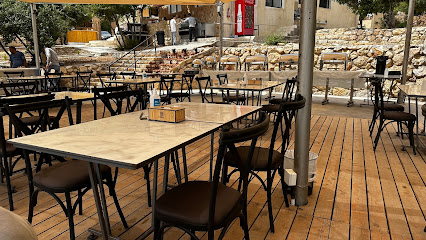
A restaurant and a coffee shop Massa tourism
Experience authentic Jordanian cuisine at Massa Tourism Restaurant in Ajloun - where every meal tells a story.
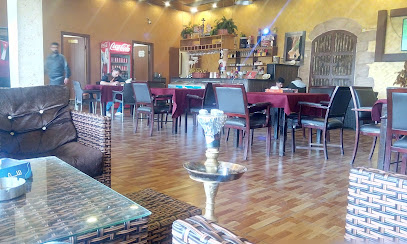
مطعم و كوفي شوب إطلالة عجلون السياحي
Experience authentic Jordanian cuisine with breathtaking views at مطعم و كوفي شوب إطلالة عجلون السياحي near Ajloun Castle.
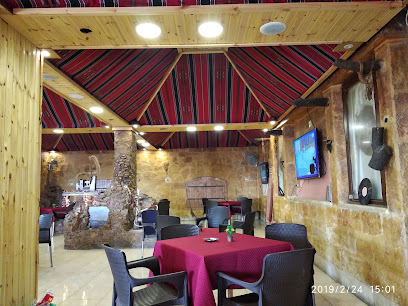
مطعم و منتجع طواحين عجلون السياحي
Experience authentic Jordanian cuisine amidst breathtaking views at Tawaheen Ajloun Tourist Resort.
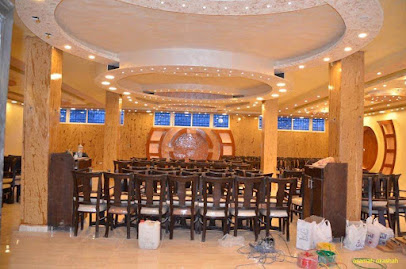
Ajloun Forest Reserve Restaurant
Experience authentic Jordanian cuisine surrounded by breathtaking natural beauty at Ajloun Forest Reserve Restaurant.
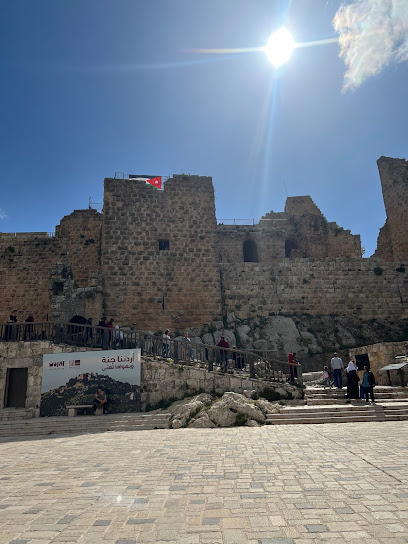
Oak restaurant
Discover Oak Restaurant in Ajloun - where traditional Jordanian cuisine meets breathtaking natural beauty.
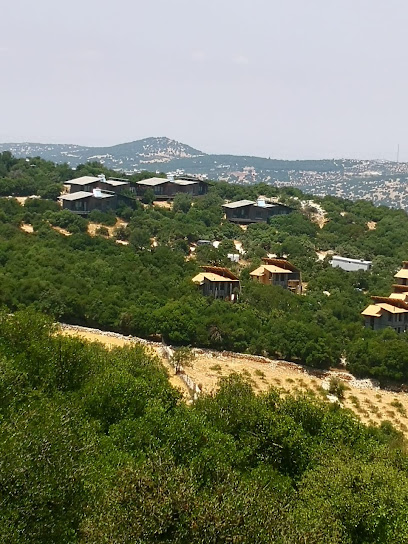
Markets, malls and hidden boutiques
Ajloun Castle
Explore the breathtaking Ajloun Castle, a 12th-century fortress offering stunning views and rich history in northern Jordan.
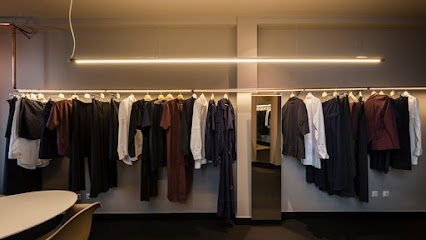
محمية غابات عجلون
Discover the breathtaking beauty of Ajloun Forest Reserve, where nature and history intertwine in the heart of Jordan.
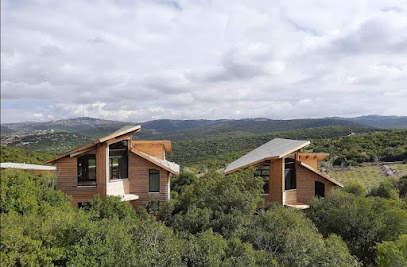
Green Salon Sweets حلويات الصالون الاخضر
Discover the sweet side of Ajloun at Green Salon Sweets, where traditional treats meet modern flavors in a delightful candy store experience.
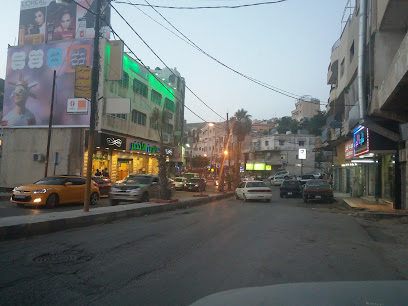
Ajloun cable car station 2
Explore the breathtaking views of Ajloun from the cable car station, where adventure meets nature in Jordan's beautiful landscape.
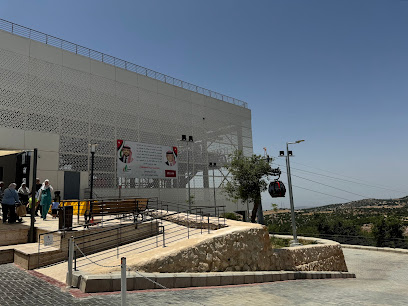
Ajloun Civil Market
Explore Ajloun Civil Market, a vibrant shopping destination showcasing local culture, crafts, and delicious Jordanian cuisine.
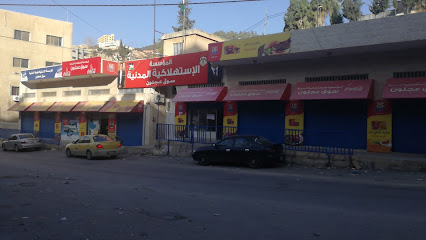
عجلون مول
Discover Ajloun Mall: A shopper's paradise filled with diverse brands, delicious dining, and family-friendly entertainment in the heart of Jordan.

معرض القرشي
Explore the latest in technology at معرض القرشي, Ajloun's premier electronics store, featuring top brands and exceptional service.
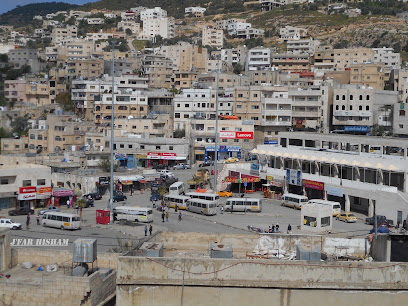
شركة بوابة عجلون
Discover unique Jordanian crafts and home goods at Ajloun Gate in Jerash, a treasure trove for tourists seeking authentic souvenirs.
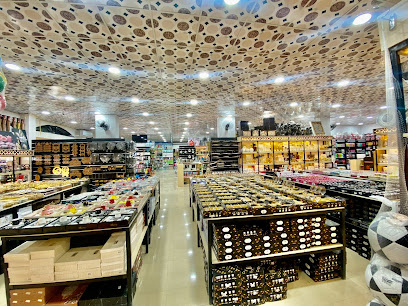
Military Consumer Establishment
Discover the Military Consumer Establishment in Ajloun: a vibrant shopping mall offering a mix of local culture, modern retail, and delicious cuisine.
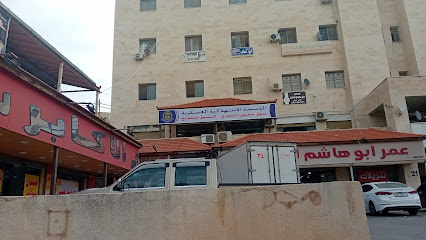
The Biscuit House
Explore The Biscuit House in Ajloun for handmade biscuits crafted by local artisans, showcasing the rich flavors of Jordan's culinary heritage.
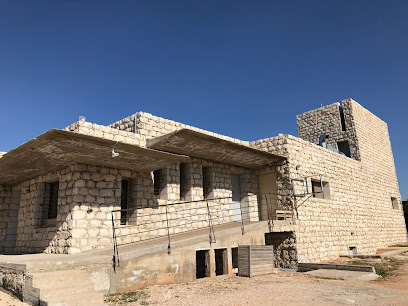
Gilead Market
Explore Gilead Market in Ajloun for unique gifts and the finest local coffee, showcasing the heart of Jordanian culture and craftsmanship.
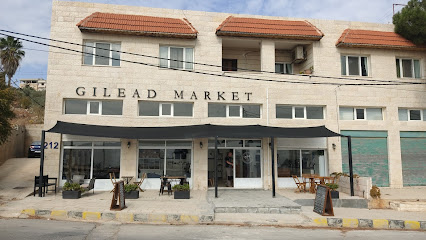
Land Kufranjah كفرنجة سوق مواد البناء
Discover the vibrant culture and shopping experiences at Land Kufranjah, a bustling market in the heart of Kufranjah, Jordan.
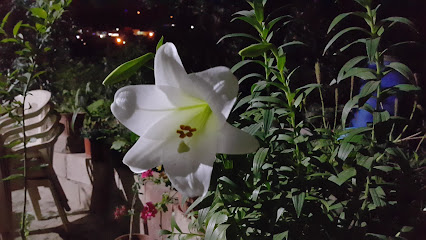
ركن عجلون لمستلزمات الكيك والحلويات
Experience the ultimate candy haven at Ajloun Corner, where every treat is crafted with love, perfect for tourists seeking sweet delights.
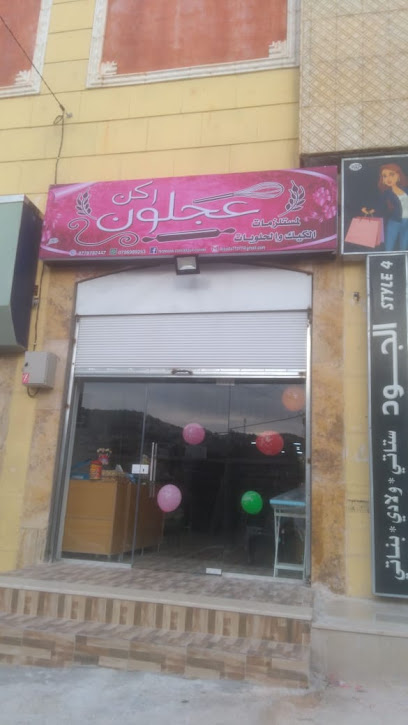
Hakaya Zamman - حكايا زمان
Discover the charm of Hakaya Zamman in Ajloun, where tradition meets relaxation in a delightful hookah bar and coffee shop experience.
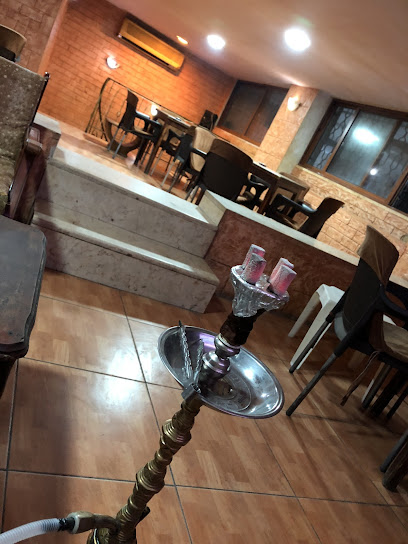
مجوهرات العروس الانيقه
Explore the exquisite bridal jewelry at Elegant Bridal Jewelry in Kufranjah, where tradition meets modern elegance for the perfect special occasion.
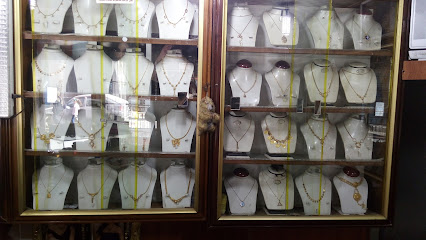
Essential bars & hidden hideouts
Jar Al Jabal Restaurant - مطعم جار الجبل
Discover authentic Jordanian cuisine at Jar Al Jabal Restaurant, where breathtaking views and rich flavors create an unforgettable dining experience.
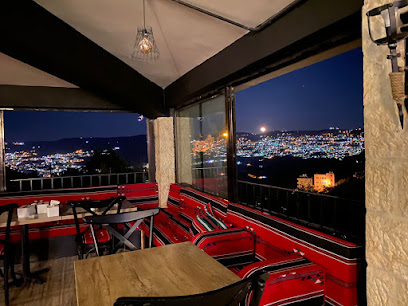
Resturant and cafe' castle view ( مطعم وكافيه اطلالة القلعة )
Experience exquisite dining with breathtaking views at Castle View Restaurant in Ajloun, blending traditional Jordanian flavors with a stunning landscape.
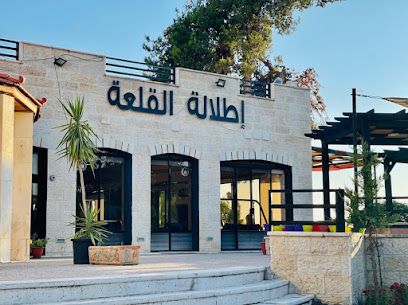
صالة قصر القمه للإحتفالات والمؤتمرات
Experience elegance and comfort at Qasr Al-Qimmah, Ajloun's premier lounge for events and relaxation.
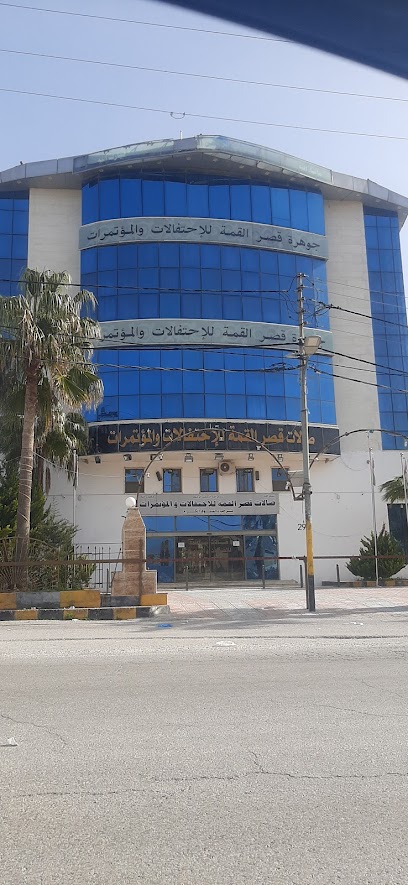
مطعم بانوراما عجلون(Panorama Ajloun Restaurant)
Discover authentic Jordanian cuisine with breathtaking views at Panorama Ajloun Restaurant, a must-visit dining destination in the heart of Ajloun.
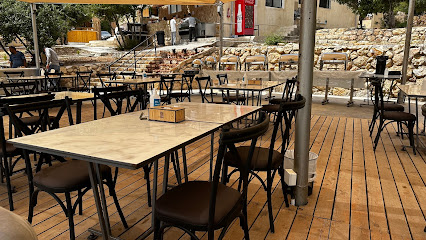
A restaurant and a coffee shop Massa tourism
Discover the culinary delights of Ajloun at Massa Tourism, where local flavors meet a welcoming atmosphere for an unforgettable dining experience.

مطعم و كوفي شوب إطلالة عجلون السياحي
Experience the taste of Jordan at مطعم و كوفي شوب إطلالة عجلون السياحي, where culinary delights meet stunning views near Ajloun Castle.
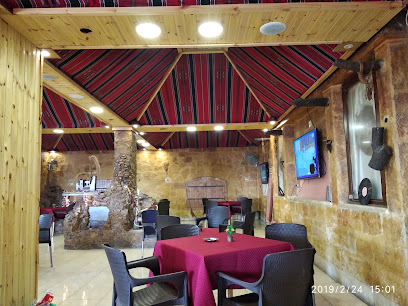
ديوان عشيرة الجبالي
Discover the serene ambiance and authentic flavors at Diwan Ashira Al-Jabali, a must-visit lounge in Ajloun for every traveler.
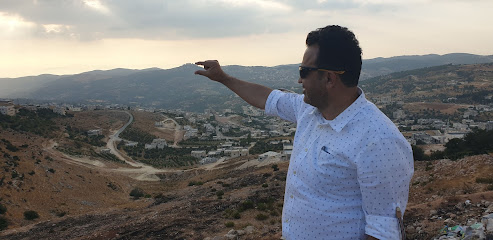
almesga oweis liquor store
Experience the vibrant atmosphere and diverse selection at Almesga Oweis Liquor Store, a local favorite in Ajloun, Jordan.
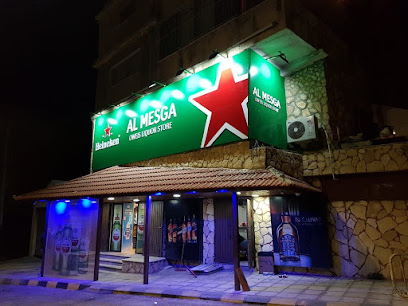
Jordan Wine House
Discover the charm of local wines and delightful dishes at Jordan Wine House in Ajloun, a perfect spot for brunch or an evening out.
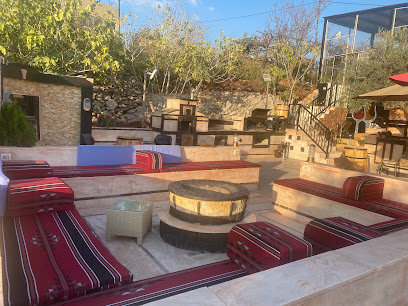
Tibo Resto Café
Discover the flavors of Ajloun at Tibo Resto Café, where mouthwatering barbecue meets a cozy atmosphere.
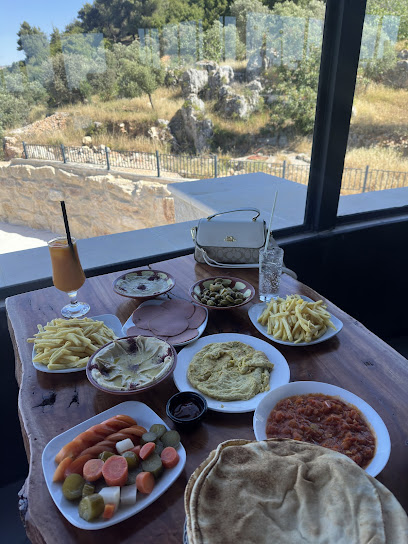
مخيم خلة السعادة البيئي.عجلون
Experience the beauty of nature and delightful local cuisine at مخيم خلة السعادة البيئي in Ajloun.

نادي المتقاعدين العسكريين
Discover the charming Military Pensioners' Club in Ajloun, where relaxation meets local culture in a cozy lounge atmosphere.
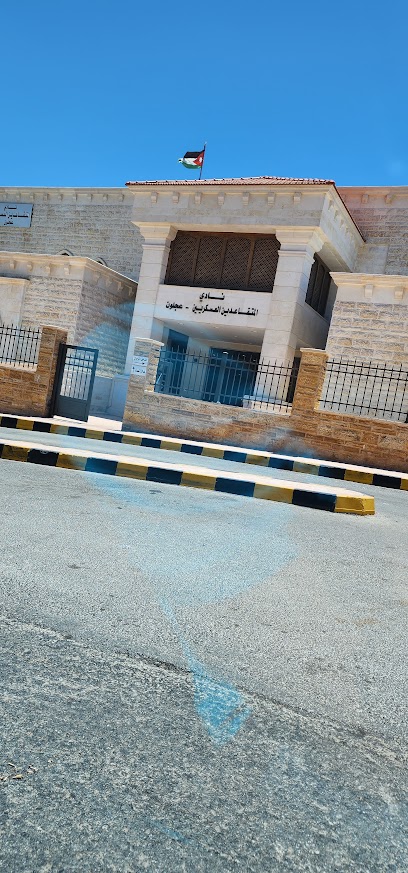
Ereifej Liquor Store ميني ماركت عريفج
Discover the local flavors and vibrant atmosphere at Ereifej Liquor Store in Ajloun, a must-visit for beverage enthusiasts.
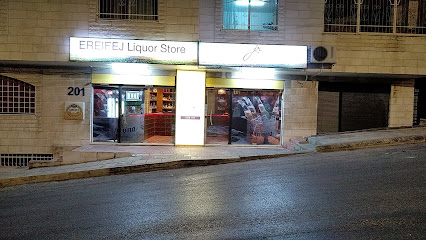
مسبح وجلسات العشي
Experience the tranquil beauty and culinary delights at 'مسبح وجلسات العشي' in Kufranjah, where every meal is a celebration of local flavors.
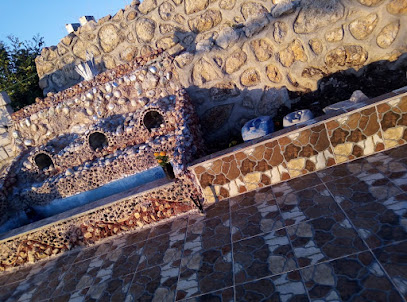
Local Phrases about Ajloun Castle
-
- Helloمرحبا
[Marhaba] - Goodbyeوداعا
[Wada'an] - Yesنعم
[Na'am] - Noلا
[La] - Please/You're welcomeمن فضلك
[Min fadlik] - Thank youشكرا
[Shukran] - Excuse me/Sorryعذرا
[A'ithrana] - How are you?كيف حالك؟
[Kayf halik?] - Fine. And you?بخير. وأنت؟
[Bekhair. Wa ant?] - Do you speak English?هل تتحدث الإنجليزية؟
[Hal tatahadath al-Injiliyazia?] - I don't understandلا أفهم
[La afham]
- Helloمرحبا
-
- I'd like to see the menu, pleaseأريد أن أرى القائمة، من فضلك
[Uriid an ara al-qaima, min fadlik] - I don't eat meatأنا لا آكل اللحم
[Ana la akl al-lahm] - Cheers!في صحتك!
[Fi sahtik!] - I would like to pay, pleaseأريد أن أدفع، من فضلك
[Uriid an adfae, min fadlik]
- I'd like to see the menu, pleaseأريد أن أرى القائمة، من فضلك
-
- Help!النجدة!
[Alnajda!] - Go away!انصرف!
[Insarf!] - Call the Police!اتصل بالشرطة!
[Itsal bialshurta!] - Call a doctor!اتصل بالطبيب!
[Itsal bialtabib!] - I'm lostأنا ضائع
[Ana daie] - I'm illأنا مريض
[Ana marid]
- Help!النجدة!
-
- I'd like to buy...أريد أن أشتري...
[Uriid an ashtari...] - I'm just lookingأنا فقط أتفرج
[Ana faqat atfarij] - How much is it?كم سعره؟
[Kam si'ruh?] - That's too expensiveهذا غالي جدا
[Hatha ghali jiddan] - Can you lower the price?هل يمكنك خفض السعر؟
[Hal yumkinuk khafd al-si'ur?]
- I'd like to buy...أريد أن أشتري...
-
- What time is it?كم الساعة؟
[Kam al-sa'a?] - It's one o'clockالساعة الواحدة
[Al-sa'at al-wahida] - Half past (10)الساعة والنصف (عشرة)
[Al-sa'at wal-nisf ('ashra)] - Morningصباح
[Sabah] - Afternoonبعد الظهر
[Ba'd al-zuhr] - Eveningمساء
[Masa'] - Yesterdayأمس
[Ams] - Todayاليوم
[Al-yawm] - Tomorrowغدا
[Ghadan] - 1واحد
[Wahid] - 2اثنان
[Ithnan] - 3ثلاثة
[Thalatha] - 4أربعة
[Arba'a] - 5خمسة
[Khamsa] - 6ستة
[Sitta] - 7سبعة
[Sab'a] - 8ثمانية
[Thamania] - 9تسعة
[Tis'a] - 10عشرة
['Ashara]
- What time is it?كم الساعة؟
-
- Where's a/the...?أين ...؟
[Ayna ...?] - What's the address?ما هو العنوان؟
[Ma hu al-unnwan?] - Can you show me (on the map)?هل يمكنك إظهار لي (على الخريطة)؟
[Hal yumkinuk 'idhar li ( 'ala al-khart)] - When's the next (bus)?متى الحافلة القادمة؟
[Mata al-hafilat al-qadima?] - A ticket (to ....)تذكرة (إلى ...)
[Tazkirat ( 'iilaa ...)]
- Where's a/the...?أين ...؟
History of Ajloun Castle
-
Ajloun Castle, known in Arabic as Qal'at Ar-Rabad, was constructed in 1184-85 by Izz al-Din Usama, a general of Saladin. The castle was strategically built to protect the region from Crusader incursions and to control the iron mines of Ajloun, which were a vital resource at the time.
-
Ajloun Castle played a crucial role during the Crusades, serving as a military fortification that helped safeguard the communication routes between South Jordan and Syria. The castle's strategic location allowed it to oversee and control the movement of Crusader forces, disrupting their supply lines and aiding the Muslim armies in their resistance.
-
After the fall of the Ayyubid dynasty, Ajloun Castle came under the control of the Mamluks in the 13th century. They expanded and fortified the castle, enhancing its defensive capabilities. During the Ottoman period, the castle continued to serve as a military post and administrative center, highlighting its ongoing strategic importance.
-
In 1837 and 1927, Ajloun Castle suffered significant damage due to powerful earthquakes. The castle was partially restored in the 20th century, with efforts aimed at preserving its historical integrity while making it accessible for visitors. These restorations have enabled the castle to remain a valuable cultural and historical landmark.
-
Today, Ajloun Castle stands as a testament to the region's rich history and cultural heritage. It is a popular tourist destination, attracting visitors from around the world who come to explore its well-preserved structures and learn about its historical significance. The castle also serves as a venue for cultural events and educational programs, further cementing its role as a key historical and cultural site in Jordan.
Ajloun Castle Essentials
-
Ajloun Castle is located in the Ajloun Governorate in northern Jordan. The nearest major city is Amman, which is about 73 kilometers away. From Amman, you can take a taxi or rent a car to reach the castle. Public buses run from Amman to Ajloun town, and from there you can take a local taxi to the castle. The journey by road typically takes around 1.5 to 2 hours.
-
Once in Ajloun, local taxis are the most convenient means of transportation to the castle. The town itself is small and can be explored on foot. If you prefer public transportation, buses are available but can be less reliable. Renting a car is also an option, providing flexibility to explore nearby attractions such as the Ajloun Nature Reserve.
-
The official currency in Jordan is the Jordanian Dinar (JOD). Credit cards are accepted in larger establishments, but it is advisable to carry cash, particularly for smaller shops, taxis, and local markets. ATMs are available in Ajloun town, but it is wise to withdraw enough cash in Amman before traveling to ensure you have sufficient funds.
-
Ajloun is generally a safe destination for tourists. Standard precautions should be taken, such as avoiding walking alone at night in unfamiliar areas and keeping an eye on personal belongings in crowded places. There are no specific high-crime areas targeting tourists, but it's always best to stay vigilant and aware of your surroundings.
-
In case of emergency, dial 911 for immediate assistance. The local police station and medical facilities are available in Ajloun town. It is recommended to have travel insurance that covers medical emergencies. For minor health issues, there are pharmacies in the town where you can purchase over-the-counter medications.
-
Fashion: Do dress modestly, particularly when visiting religious sites. Avoid wearing revealing clothing. Religion: Do respect local customs and traditions. Always remove your shoes before entering mosques. Public Transport: Do be respectful and give up your seat to elderly passengers. Don't eat or drink on public transport. Greetings: Do greet people with a handshake or a nod. It is polite to use the right hand for greetings. Eating & Drinking: Do try local delicacies and accept food offerings graciously. Don't refuse hospitality, as it is considered impolite.
-
To experience Ajloun like a local, visit the local markets where you can buy fresh produce and traditional Jordanian goods. Engage with locals, as they are often friendly and willing to share stories about the area's history and culture. Don't miss visiting the Ajloun Nature Reserve for a unique experience of Jordan's natural beauty. Enjoy traditional Jordanian dishes like Mansaf and Maklouba at local restaurants for an authentic culinary experience.
Nearby Cities to Ajloun Castle
-
Things To Do in Irbid
-
Things To Do in Beit She'an
-
Things To Do in Salt
-
Things To Do in Umm Qais
-
Things To Do in Mafraq
-
Things To Do in Amman
-
Things To Do in Tiberias
-
Things To Do in Nazareth
-
Things To Do in Madaba
-
Things To Do in Safed
-
Things To Do in Hadera
-
Things To Do in Zikhron Ya'akov
-
Things To Do in Jerusalem
-
Things To Do in Kfar Saba
-
Things To Do in Caesarea








